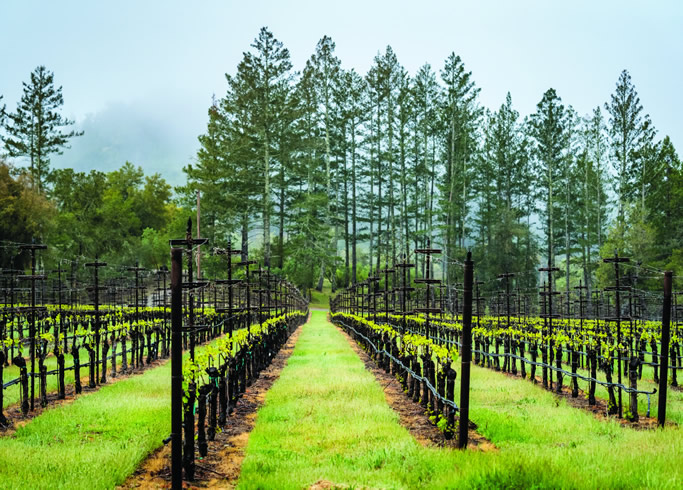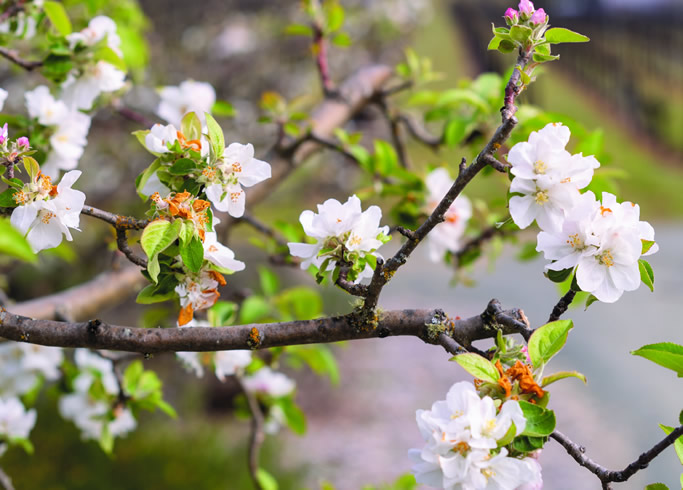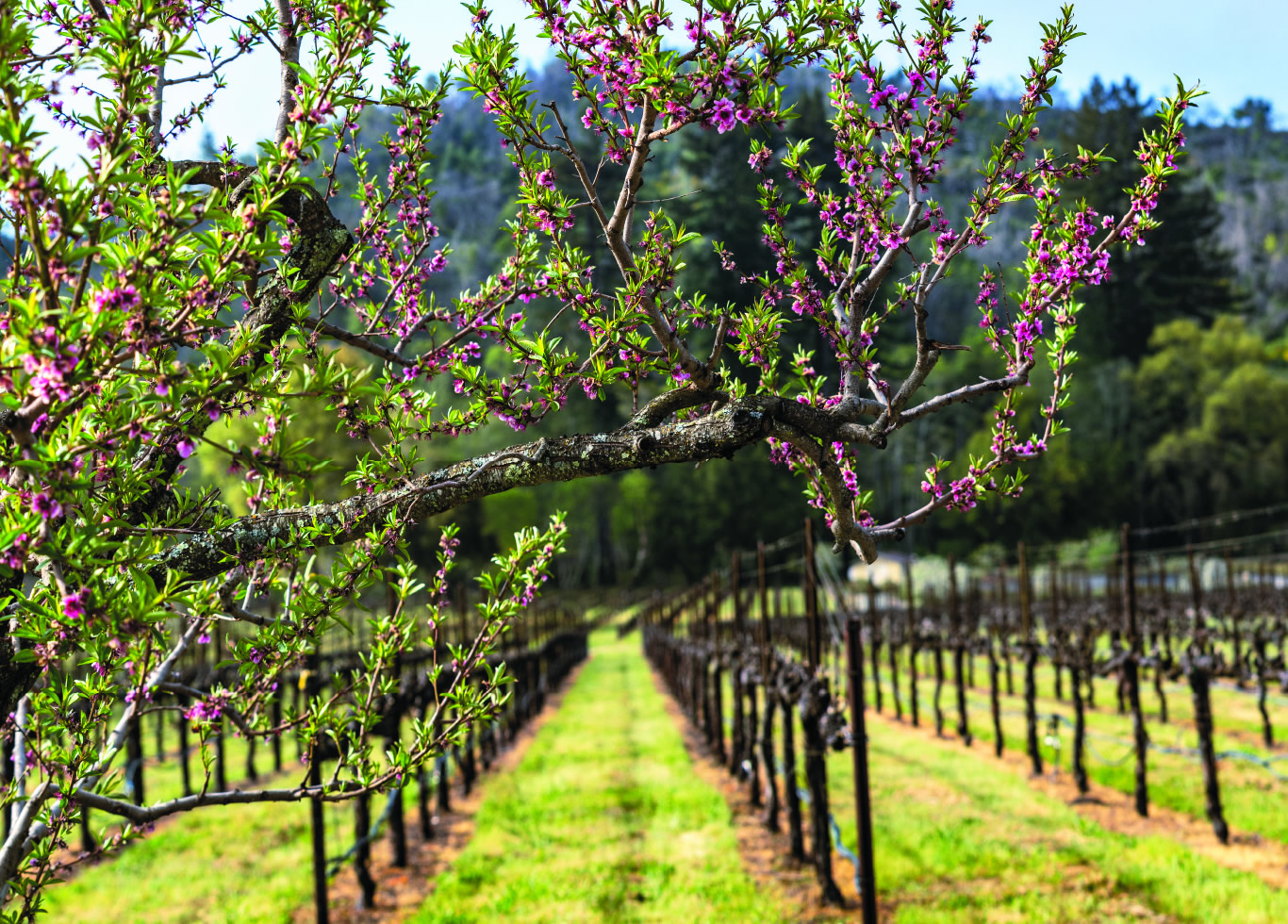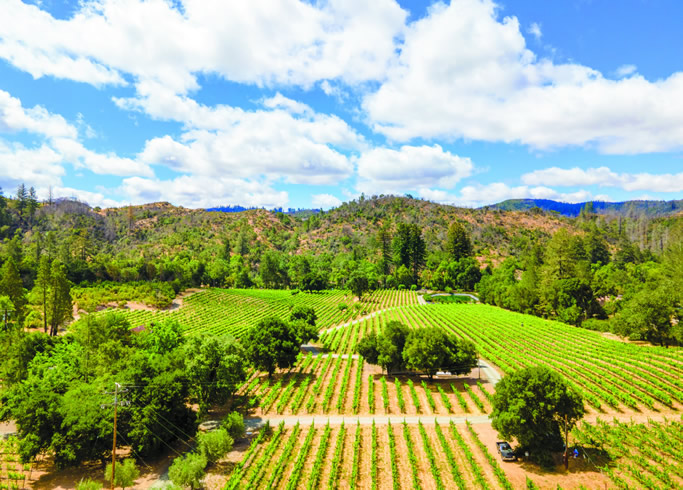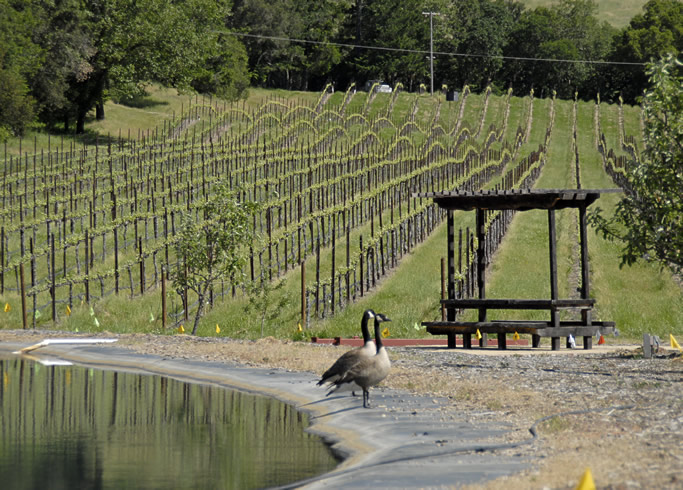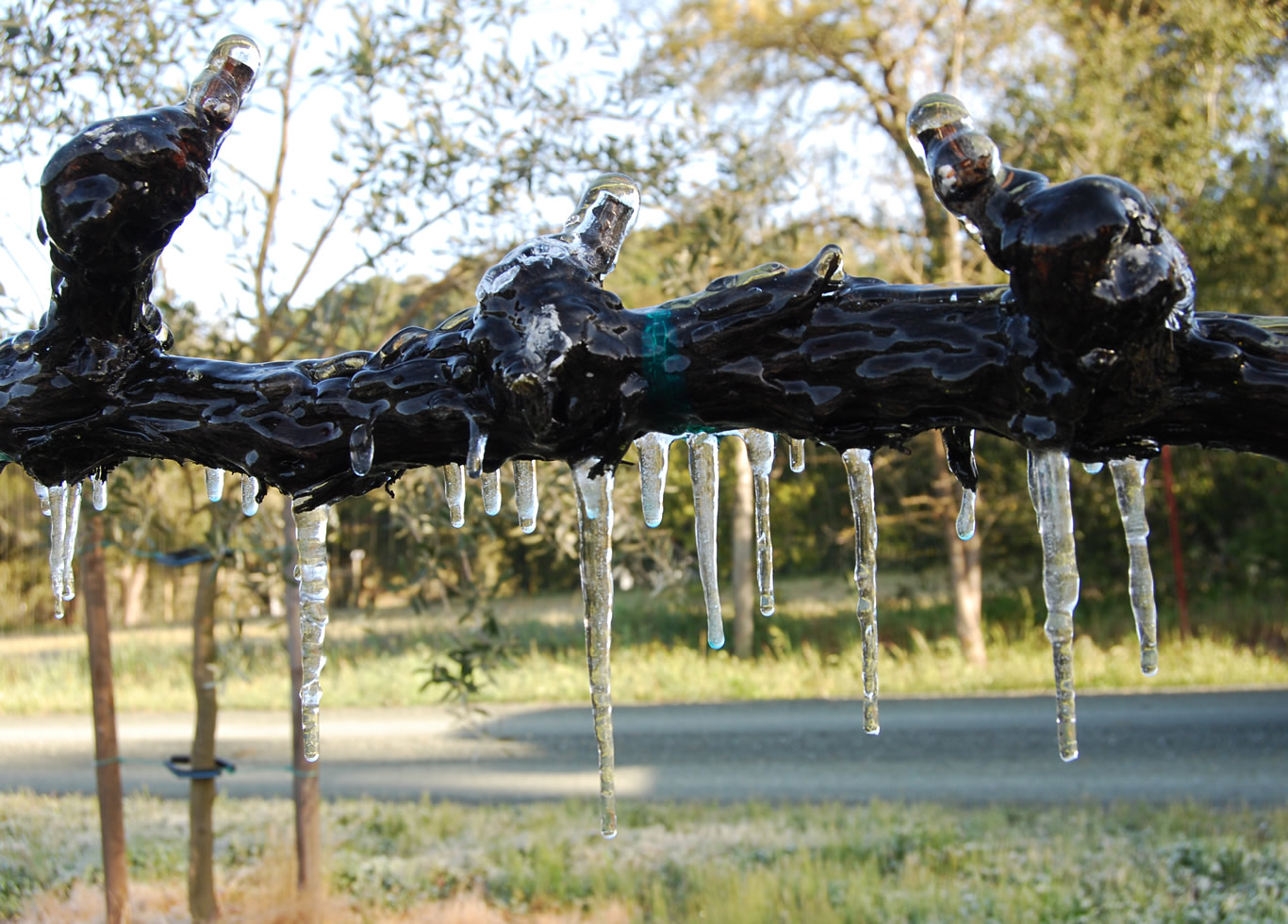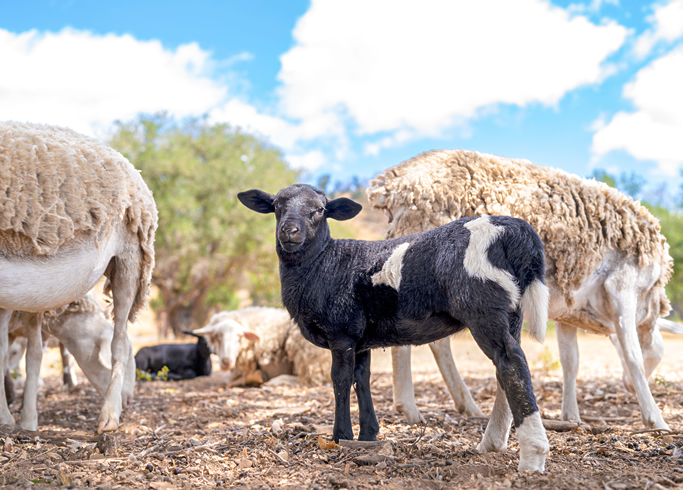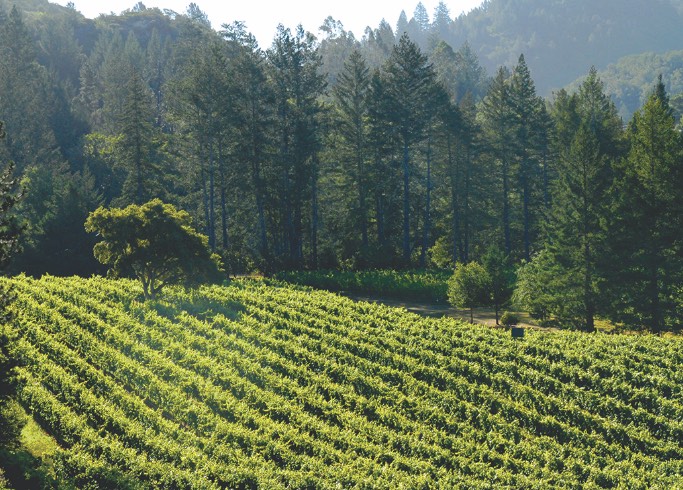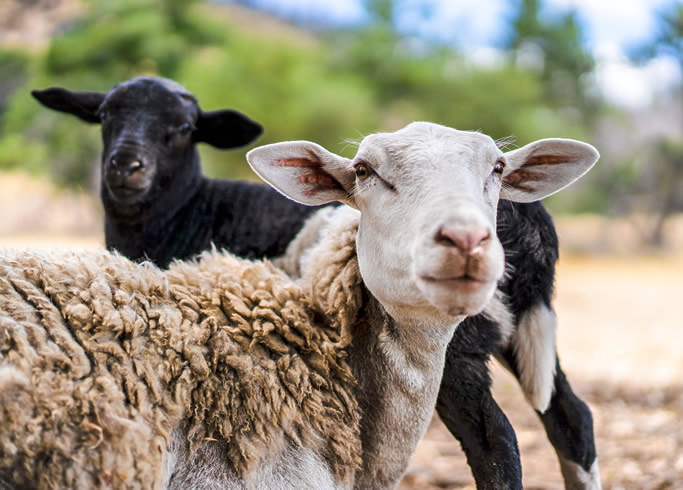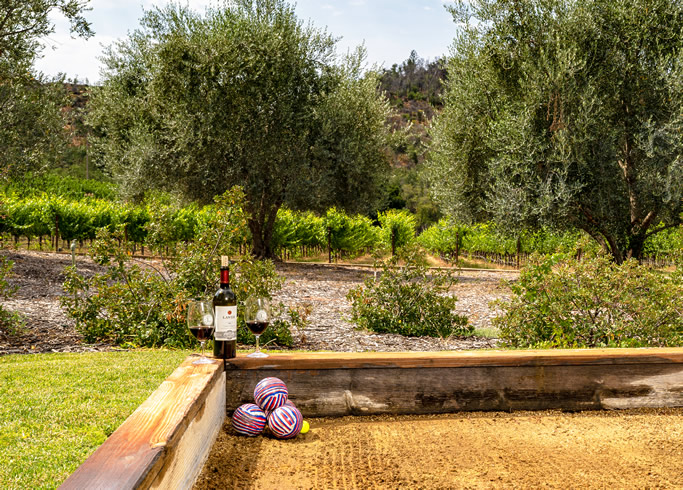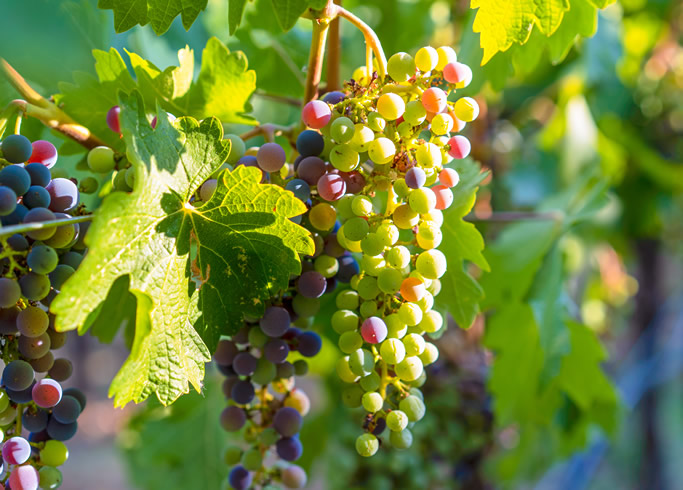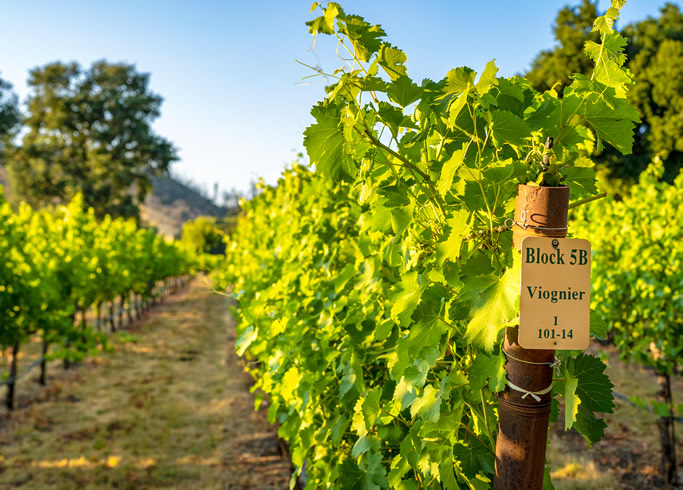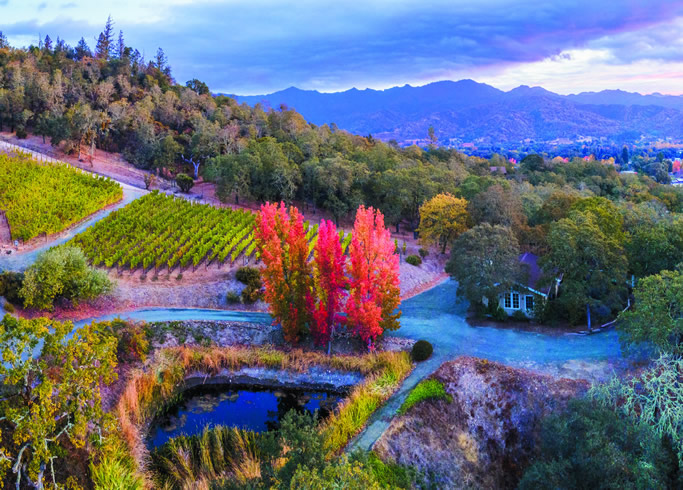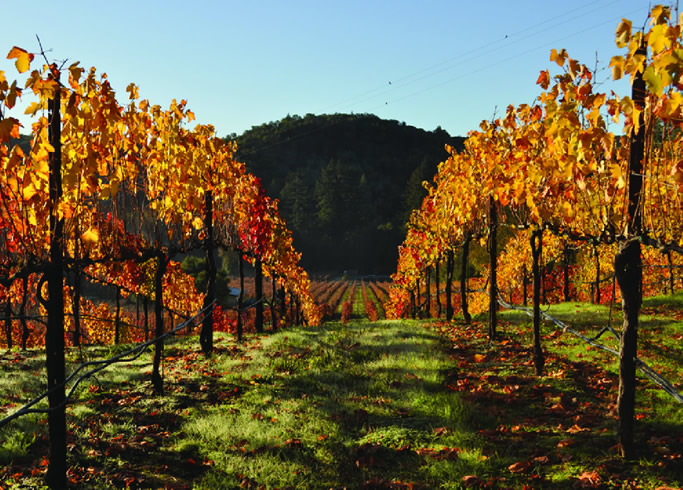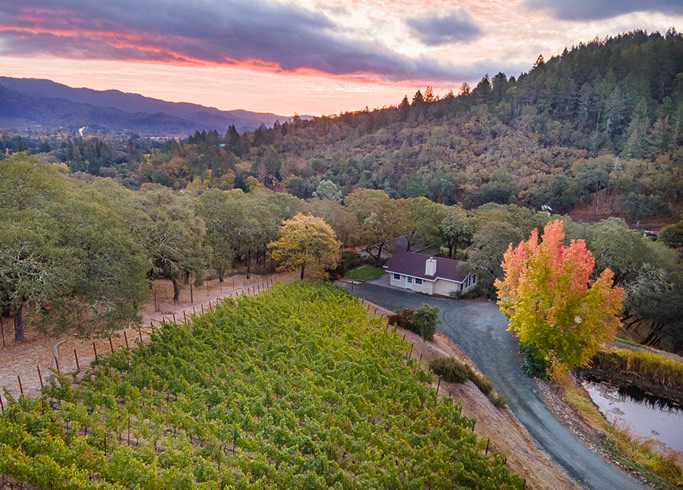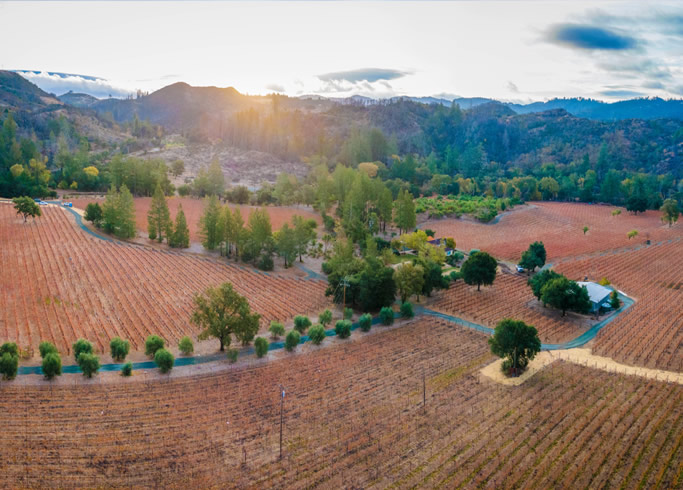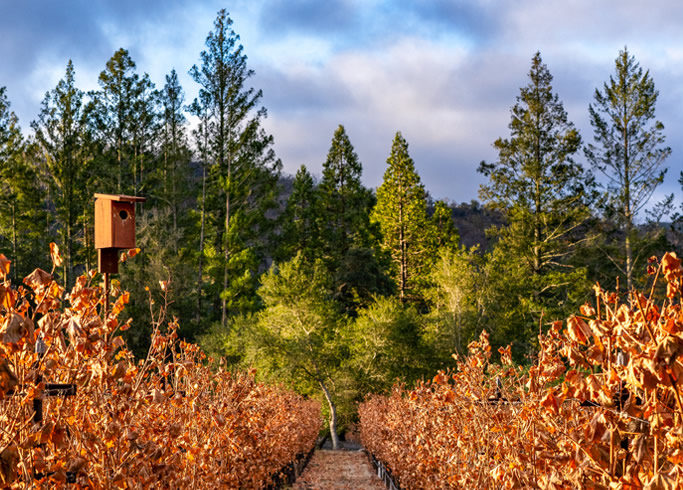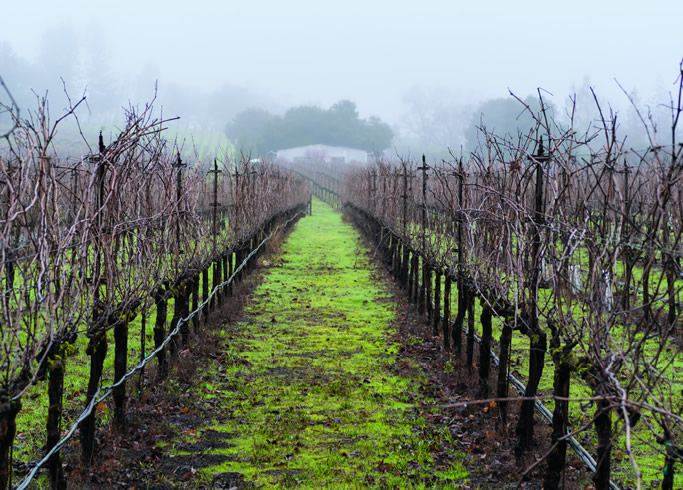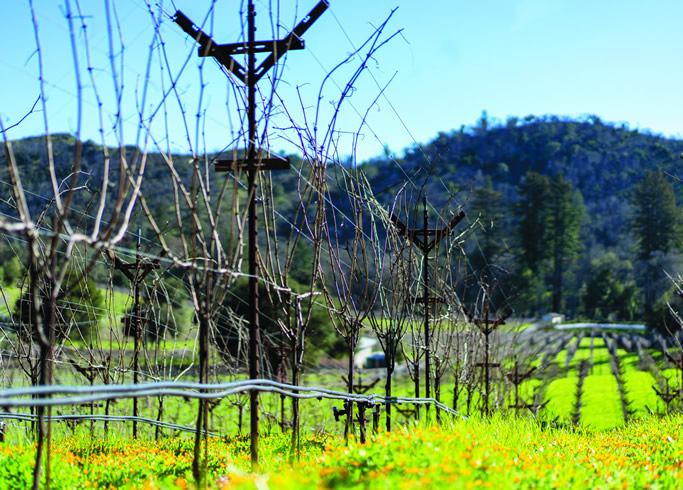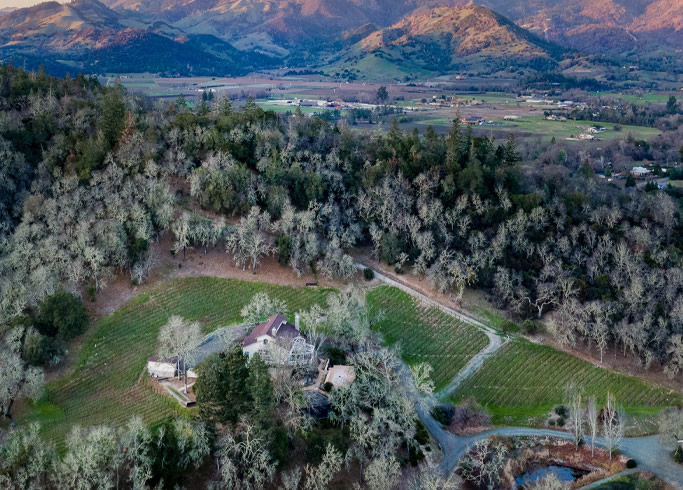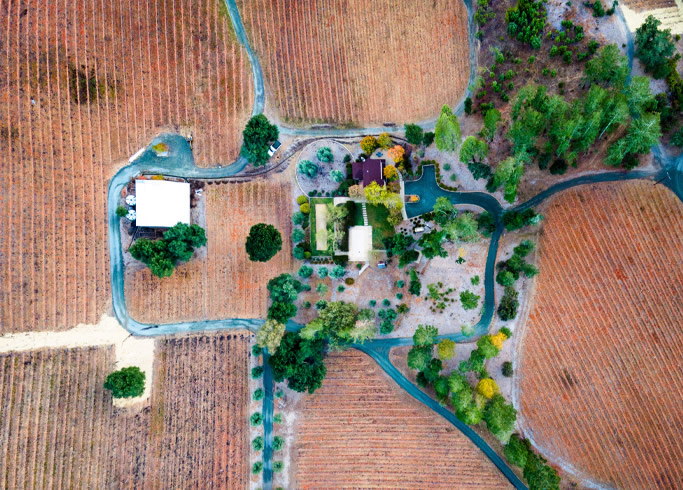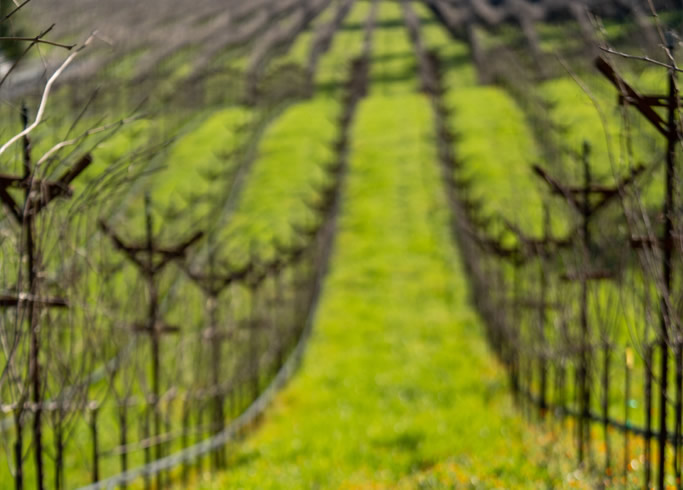Vineyards
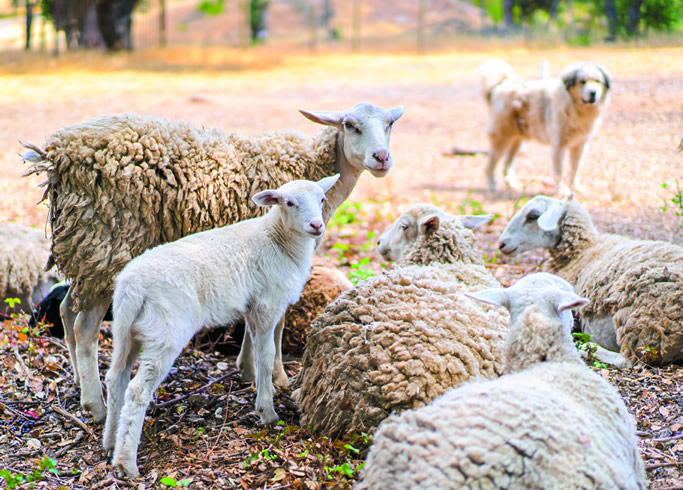
Sustainability
We’re not sheepish about sustainability, because now, more than ever, sustainability matters. From spring lambs, to barn owls, to bats, to Red Clover cover crop, and a restaurant green waste compost blend, all farming decisions at Lawer Estates are based on a holistic approach with biodiversity as a main objective.
Our vineyards are certified sustainable.
The production of ultra-premium wine grapes does not have to come at the cost of the environment. Taste the Lawer Estates award winning wines made from these sustainably grown grapes for yourself.
Our viticultural practices are right for the environment, right for the vineyard and right for our wines. Perhaps most important, “sustainability” is especially right for our family.
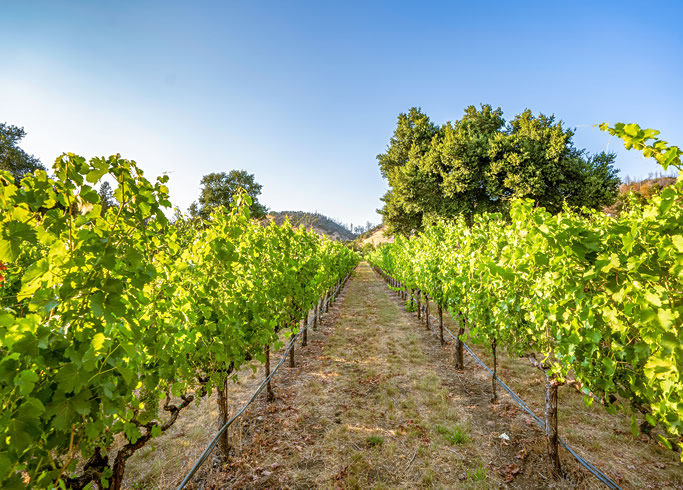
Terroir
Betsy and her husband David sat on the porch of the old farmhouse, nestled in the heart of the orchard. They watched as the Wine Whisperer weaved between the 80-year-old apple trees, picking and munching on apples as he scoped out the property. After awhile, he returned to the farmhouse with a wide grin on his face and exclaimed, “I will write a thick viticultural report for you. But, I know right now, any property that grows apples this good will produce great grapes.”
With exceptional terroir and unique climate, Betsy’s Vineyard in Knights Valley within Sonoma is known for yielding some of the region’s finest grapes. Follow a Season in the Vineyard, to discover just what makes this vineyard special.
Spring
Spring at our vineyard in Franz valley is always announced by the honking of a pair of geese, who take up residence in the reservoir.
It freezes most every night, and the vineyard crew nap in the cab of their trucks, in between walking the vineyard rows to make sure that the sprinkler heads haven’t frozen. It’s counter intuitive, but the glaze of ice from the sprinklers protects buds on the vine from freezing.
Once the threat of frost is gone, the vineyard crews tie and train the vines to the wire vineyard trellis, to ensure that the grapes receive the right balance of sunlight and fresh air.
Summer
Summer in the upper Napa Valley is normally HOT, with morning fog giving way to brilliant sunshine. About 3pm in the afternoon, the maritime breezes come up the valley giving way to cool evening temperatures, which foster the grapes’ natural acidity, for an ideal balance. The vineyard crew prunes the leaves so that the bunches of grapes get the ideal balance of sun and shade. Our vineyard manager and winemakers walk the vineyard frequently, deciding how much fruit to drop for maximum yield and the very best flavors. Veraison, when the grapes change color, usually occurs in august, and the countdown to harvest, usually in about 4-6 weeks later – begins.
Fall
It’s harvest time! The months of hard work and nurturing the vines is coming to fruition. Hang time is a priority. We watch the forecasts – will it rain…more than just a sprinkle…and cause rot or will we have warm, sunny fall days? In our little valley, we have frost normally by mid October. Will the frosts be late, giving the fruit more hang time or will they come early. Meanwhile the Pina Vineyard Management team, along with our winemakers, Cary Gott and Kelly DeIanni, are walking the rows. Tasting and testing the fruit for flavor and maturity. It’s the ultimate combination of science and art…and mother nature is in charge. Harvest is coming to an end and the leaves on the vines turn brilliant shades of crimson, orange and gold. It’s quite a show!
Winter
The winter rains begin and the air turns chilly. It’s time for those evening fireplace fires and long afternoon walks on days when the sun is out and the sky is a brilliant blue.
From November through March the vines have lost their leaves and are dormant. The vineyard crew postpones pruning last year’s growth until the last moment. Pruning stimulates growth. With the late frosts in Franz Valley, a later bud break is our preference.
